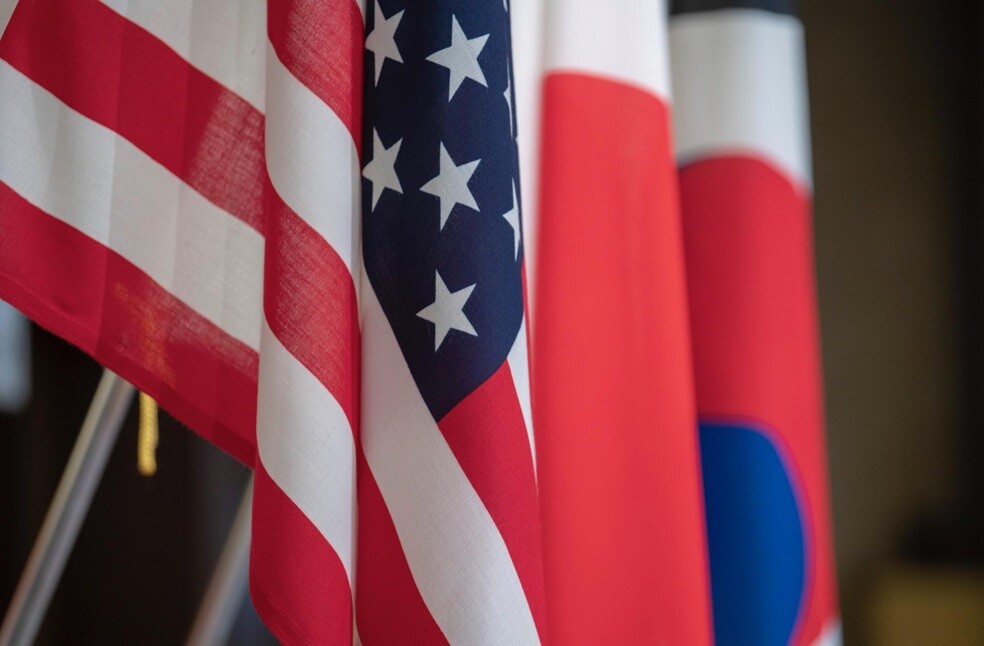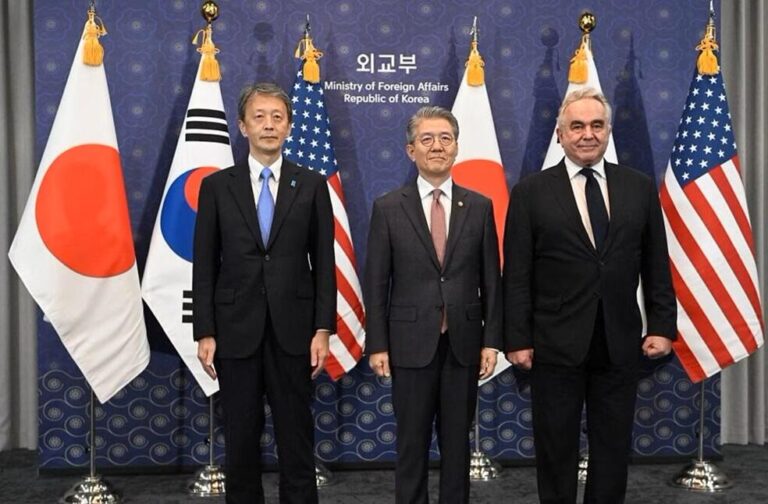Seoul: The United States, South Korea, and Japan have announced the formation of a new multinational team to monitor sanctions enforcement against North Korea, following disruptions to UN oversight by Russia and China.
The new Multilateral Sanctions Monitoring Team will take over the responsibilities of the UN panel of experts, whose mandate expired in March when Russia blocked its renewal, and China abstained from voting.
For the past 15 years, this panel has played a key role in ensuring compliance with sanctions designed to curb North Korea’s nuclear and missile programmes.
At a joint press conference in Seoul, US Deputy Secretary of State Kurt Campbell, South Korean Vice Foreign Minister Kim Hong-kyun, and Japan’s Vice Foreign Minister Masataka Okano officially launched the new monitoring mechanism, with ambassadors from eight supporting countries – including Britain, France, and Germany also in attendance.

During the announcement, Vice Foreign Minister Kim highlighted the urgency of the initiative. “There have been ongoing discussions about how to replace the UN panel, but during that time, North Korea continued to violate sanctions. We realised we could not delay any further,” Kim said.
While efforts to reinstate the UN mechanism will continue, the newly formed team will remain open to any country willing to assist in enforcing sanctions. “This initiative fills a critical gap,” Kim added.
Campbell noted that Russia’s veto against the UN panel renewal may have been motivated by previous reports linking Moscow to illegal purchases of North Korean weapons for the Ukraine conflict. “This new mechanism provides a significant step in tracking North Korea’s activities and holding them accountable,” he said.
Both Washington and Seoul have accused North Korea and Russia of engaging in illicit arms deals, which the two nations deny. Despite these denials, Moscow and Pyongyang have pledged to strengthen military cooperation, formalising a mutual defence treaty at a summit in June.
While the new monitoring effort lacks the formal legitimacy of a UN-backed operation, it may offer greater effectiveness by bypassing Russian and Chinese efforts to dilute sanctions enforcement.
The initiative is expected to strengthen international efforts to enforce sanctions and monitor North Korea’s activities, helping curb illicit military transactions and ensuring accountability for Pyongyang’s violations.



